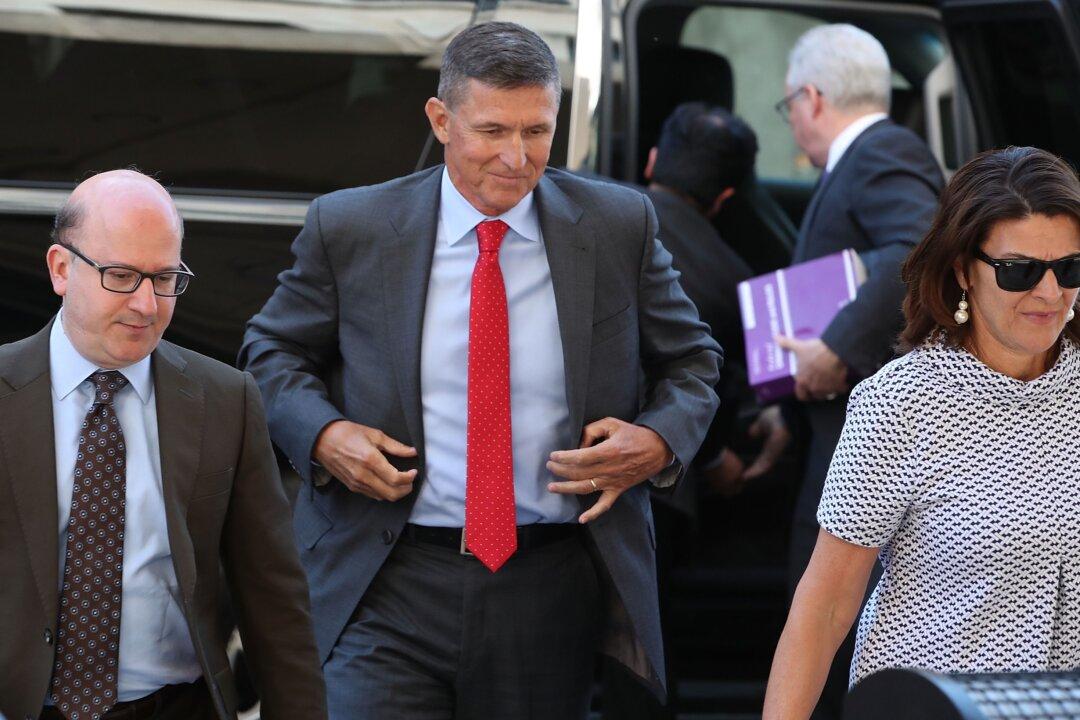Lt. Gen. Michael Flynn is requesting no more than a year of probation and community service for his confessed crime of lying to the FBI, according to his sentencing memorandum filed Dec. 11.
The memo details the unusual circumstances of the FBI interview that led to the charge against Flynn, including that it was suggested to not have a lawyer present and that he wasn’t instructed that lying to the FBI is a federal offense.





